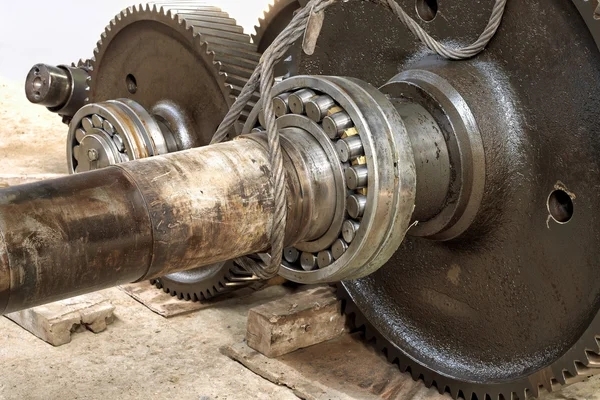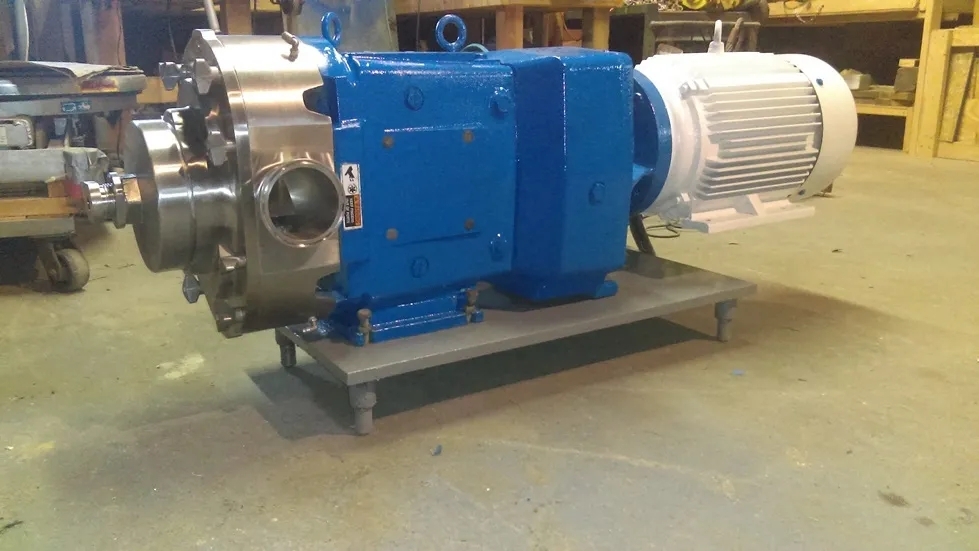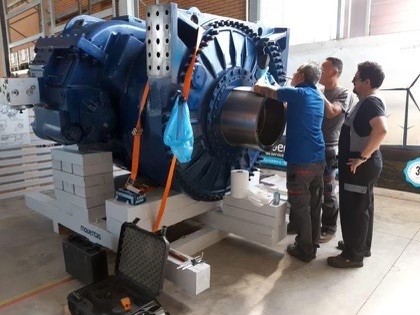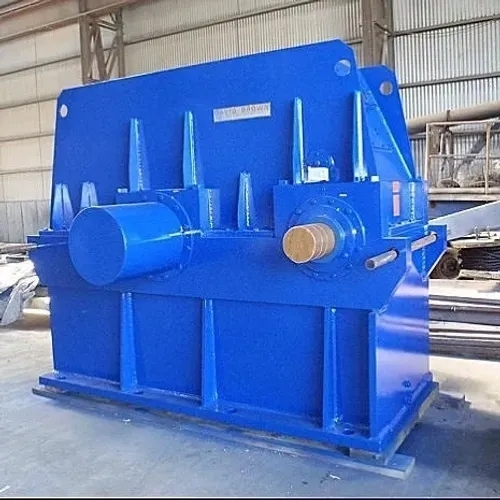

When selecting a replacement chemical bath for metal etching, key factors to consider include the chemical composition of the bath, its compatibility with the specific metal being etched, the etching rate it provides, and its environmental impact. It is important to choose a chemical bath that is effective in removing the desired amount of material without causing damage to the metal surface or posing health risks to the operators.
The pH level of the chemical bath plays a crucial role in the etching process. A lower pH level indicates a more acidic solution, which can result in faster etching rates but may also lead to increased metal dissolution and potential surface roughness. On the other hand, a higher pH level, indicating a more alkaline solution, can provide slower etching rates with better control over the process and reduced risk of over-etching.
Tompkins County poised for manufacturing boom with Menlo Micro and Micron investments “Menlo Micro announced a significant investment of over $50 million to establish a fabrication facility in Lansing, near Ithaca, New York, signaling a major boost for the local manufacturing workforce.” Read more Plug Power wins $75 million grant from DOE “The Latham hydrogen … NYS Manufacturing and Tech News 3.11.24 Read More »
Posted by on 2024-03-15
We continue our blog series on the great work of our New York State assets in Advanced Materials across the state. This week, we feature the work of Rensselaer Polytechnic Institute (RPI) in Troy, NY, and their work on next generation building technology with an aim to decarbonize the built environment. This includes working with … Advanced Materials Strengths and Assets in NYS: Focus on Rensselaer Polytechnic Institute Read More »
Posted by on 2024-02-28
Embark on an enlightening exploration of New York’s economic transformation with special guest Alyson Slack from MRB Group, as we uncover the past and present of the state’s manufacturing sector. Together with FuzeHub’s Steve Melito we chart the course from a robust production history to a burgeoning service-oriented economy, all while acknowledging manufacturing’s lasting contributions … Podcast: Building Better Economies Read More »
Posted by on 2024-03-18
New $25M beauty manufacturing and innovation hub for Black- and women-owned businesses coming to Brooklyn Navy Yard “The Brooklyn Navy Yard is set to be home to a new $25 million state-of-the-art manufacturing, incubator, and accelerator facility focused on helping Black- and women-owned health and beauty businesses launch and grow in New York City.” Read … NYS Manufacturing and Tech News 3.4.24 Read More »
Posted by on 2024-03-08
In our third feature in our New York State Assets blog series on Advanced Materials, we focus on the groundbreaking work at the University at Buffalo. Their Department of Materials Design and Innovation focuses on accelerating lab discoveries into practical engineering applications. They are pioneering new approaches in material science education and research, leveraging technologies … Advanced Materials Strengths and Assets in NYS: Focus on University at Buffalo Read More »
Posted by on 2024-03-06
Different types of metals may indeed require different chemical baths for etching due to variations in their reactivity and susceptibility to corrosion. For example, while some metals like copper may be etched using acidic solutions, others like aluminum may require alkaline baths. It is essential to match the chemical bath to the specific metal being etched to achieve optimal results and prevent damage to the material.

Safety precautions when handling metal etching chemical baths include wearing appropriate personal protective equipment such as gloves, goggles, and aprons to prevent skin contact and inhalation of fumes. It is also important to work in a well-ventilated area to minimize exposure to potentially harmful vapors and to have emergency eyewash stations and spill kits readily available in case of accidents.
The temperature of the chemical bath can significantly impact the etching results. Higher temperatures generally lead to faster etching rates due to increased chemical reactivity, while lower temperatures may slow down the process. However, extreme temperatures can also affect the stability of the chemical solution and potentially alter the etching characteristics, so it is crucial to maintain the bath at the recommended temperature range.

Environmentally-friendly alternatives to traditional metal etching chemical baths include using water-based or citric acid-based solutions that are less toxic and produce fewer harmful byproducts. These alternatives are often biodegradable and safer to handle, reducing the environmental impact of the etching process. Additionally, implementing recycling and waste management practices can further minimize the ecological footprint of metal etching operations.
The concentration of the chemical bath plays a critical role in the etching process, as it determines the rate at which material is removed from the metal surface. Higher concentrations of the etchant typically result in faster etching rates but may also increase the risk of over-etching and surface roughness. It is essential to carefully control the concentration of the chemical bath to achieve the desired etching results while maintaining the integrity of the metal being processed.

Yes, our company offers specialized repairs for industrial air scrubbers. Our team of experienced technicians is trained to handle a wide range of issues that may arise with industrial air scrubbers, including motor malfunctions, filter replacements, fan repairs, and control panel troubleshooting. We understand the importance of maintaining clean air in industrial settings, so we use advanced diagnostic tools and techniques to quickly identify and address any problems with air scrubbers. Whether it's a simple fix or a complex repair, our technicians have the expertise to get your industrial air scrubber back up and running efficiently. Contact us today for all your industrial air scrubber repair needs.
Industrial separators are designed to efficiently separate various materials in industrial processes. Companies specializing in industrial separator services often have expertise in servicing specific models of separators, such as centrifugal separators, cyclone separators, magnetic separators, and air classifiers. These experts are trained to handle maintenance, repairs, and upgrades for a wide range of industrial separators, ensuring optimal performance and longevity. By focusing on specific models, these service providers can offer tailored solutions that meet the unique needs of each client's industrial operations. Whether it's cleaning filters, replacing parts, or troubleshooting issues, these professionals have the knowledge and skills to keep industrial separators running smoothly.
The company specializes in repairing a wide range of plastic injection molding machines, including models from top manufacturers such as Arburg, Engel, Husky, and Krauss Maffei. Our team of experienced technicians is trained to work on various types of machines, from hydraulic and electric to hybrid models. With expertise in troubleshooting issues related to clamping force, injection pressure, and temperature control, we can effectively diagnose and repair any problems that may arise. Additionally, we offer preventative maintenance services to ensure optimal performance and longevity of the machines. Trust our team to provide reliable and efficient repairs for your specific model of plastic injection molding machine.
The company specializes in providing repairs for a wide range of assembly line machinery, including conveyor belts, robotic arms, automated sorting systems, packaging machines, and industrial robots. Our team of experienced technicians is trained to troubleshoot and fix issues with PLCs, sensors, actuators, motors, and other components commonly found in manufacturing equipment. We also offer preventive maintenance services to ensure optimal performance and minimize downtime. Whether it's a mechanical, electrical, or software problem, our experts have the knowledge and skills to get your machinery up and running efficiently. Contact us today for all your assembly line machinery repair needs.
A highly skilled technician specializing in CNC machining centers with complex tooling systems is capable of repairing and maintaining these advanced machines. These technicians possess expertise in areas such as spindle repair, axis alignment, tool changer troubleshooting, and control system diagnostics. They are trained to work with a variety of tooling systems, including automatic tool changers, rotary tables, and multi-axis setups. Additionally, they are familiar with a wide range of CNC machining processes, such as milling, turning, drilling, and grinding. With their in-depth knowledge of machine tool technology and precision engineering, these technicians can effectively diagnose and resolve issues to ensure optimal performance of CNC machining centers with complex tooling systems.
The process for refurbishing outdated manufacturing equipment typically involves a thorough assessment of the machinery's current condition, identifying any faulty components or outdated technology that need to be replaced or upgraded. This may include disassembling the equipment, cleaning and repairing any damaged parts, and installing new components to improve performance and efficiency. Additionally, the refurbishment process may involve updating software, recalibrating sensors, and conducting rigorous testing to ensure the equipment meets industry standards and regulations. Once the refurbishment is complete, the equipment is reassembled, tested, and certified for use in manufacturing operations. This comprehensive approach to refurbishment helps extend the lifespan of outdated equipment, reduce downtime, and improve overall productivity in manufacturing facilities.